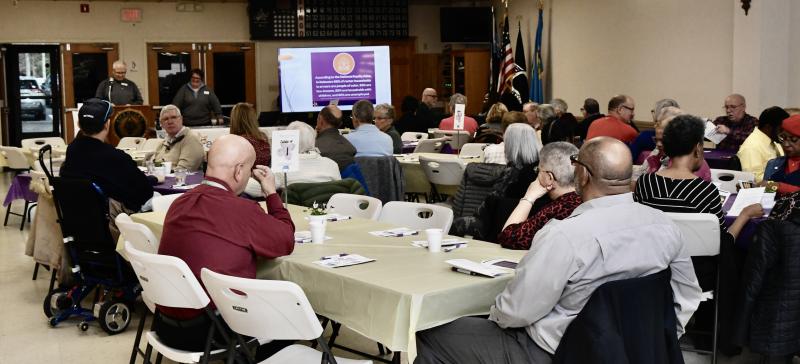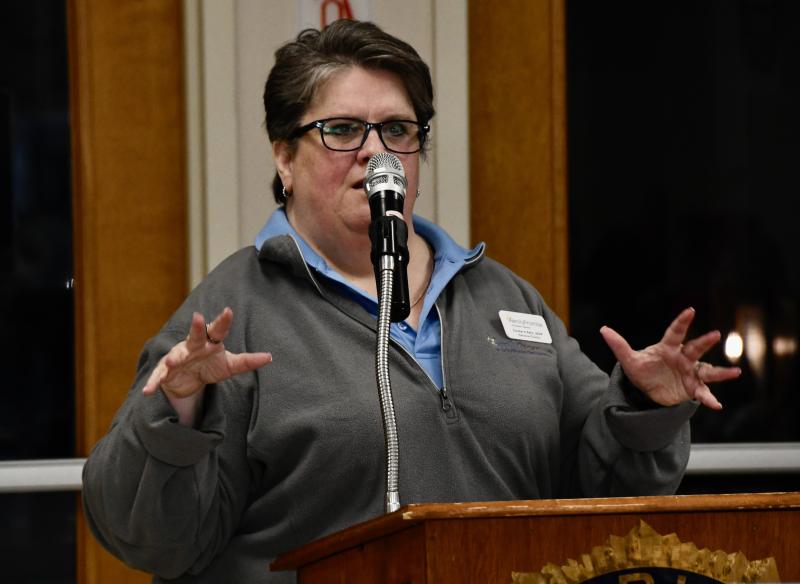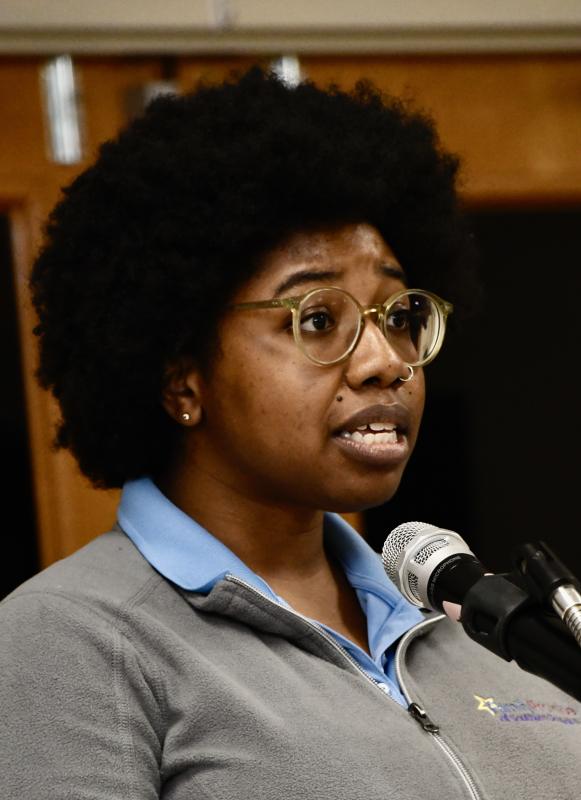Family Promise works to prevent homelessness
Family Promise of Southern Delaware had its second annual informational brunch April 6 at American Legion Post 28 in Long Neck.
Based in Lewes, Family Promise, which formed in 2021, provides funding to keep people in their homes to prevent homelessness. The program supports families throughout Sussex County.
To raise awareness of the plight of the homeless, Family Promise held Night Without a Bed events in 2021 and 2022 in Canalfront Park in Lewes and at Post 28 in 2023.
Prevention services include rental assistance and landlord mediation, assistance with utility shutoffs and other expenses contributing to housing instability.
Family Promise also offers case management, providing resources and community connections to families. Prevention resource coordinator Maria Vincent offers hands-on support and resource development to ensure a family has what it needs to mitigate a crisis and avoid future housing issues.
Support includes referral to mental health services and could include assistance with locating another apartment unit or improving the relationship with their landlord.
Support is provided as long as a family needs help and is adjusted on a case-by-case basis.
Discussions about starting a chapter in the area started in summer 2019, said board Chair Dale Smith. He said the group received support from Lewes Presbyterian Church and Bethel United Methodist Church, and it received a grant to prevent family homelessness in summer 2021.
Smith said with funding in hand, the group met with the national representatives and formed a board, and in July 2022 hired Executive Director Carolyn Kelley.
Helping families
To date, Family Promise of Southern Delaware has helped 200 families, including 247 adults and 443 children, throughout Sussex County. Nearly 90% of the families were working at least part time or had disability income.
Thirty-two of the families received support for a security deposit or first month’s rent.
Kelley said Family Promise has partnered with other service providers to reduce the average overall per-family expense from $1,143 to $537. She said the reduction allows the group to serve more families.
Vincent said many of the people the group helps have experienced domestic violence. “We have survivors. Many are employed with multiple jobs and many are multi-generational families,” she said.
She said many are single parents who have experienced a major hardship and find it difficult to pay for rent and utilities.
Kelly said the group has helped 40 families move from hotel rooms to stable housing. “We help them navigate the system and identify other resources,” she said.
The group recently received a $250,000 Rapid Recovery Program grant. Kelly said other funding comes from individual, business and church donations; school grants; Lewes-Rehoboth Association of Congregations; and New Life Thrift Store.
She said the group is seeking inclusion in the state’s grant-in-aid funding.
Kelly said 100% of funding goes to prevent homelessness because the group has other grants to fund staff. She said the group also saves money by not having a building. “We’d rather pay someone else’s rent and not our [own],” she said.
Smith said the group is looking at what’s next. “We would like to renovate and rehab manufactured homes for our families. It all comes down to money,” he said.
Homeless students
Craig Warrington, Cape Henlopen School District’s homeless liaison and visiting teacher, said there are currently 114 homeless students in the district.
Those include children from families who have been evicted; living in motels, RVs or cars; or who are doubling up living with family or friends.
The main mission of the school’s program is to provide transportation for students who go to Cape district schools and then move out of the district. Federal and state grants fund transportation costs. “Many move around, so this one part of their life that is stable,” he said.
The district partners with Family Promise, which has helped several of its families. Family Promise also partners with the Seaford and Indian River school districts.
Warrington said Indian River School District and Seaford School District each have 200 homeless students in their districts.
He said the community supports the program with donations of school supplies, food and clothing. “What we need is sleeping bags. I’ve seen four or five kids laying on the floor to sleep in a hotel room,” he said.
Other donations needed include basic hygiene products and basic home supplies.
He said while the homeless are all around us, one won’t see children on the streets. “We have to report that to the state and they will be removed from the family,” he said.
“We have to talk about a better understanding of the homeless,” he said.
Go to capehenlopenschools.com/Page/4329 for more information.
Need for housing
Availability of affordable housing and rentals in many areas of Sussex County is a driving force contributing to homelessness. Plus, there is a high demand for apartments.
One-bedroom apartments rent for about $1,500 to $1,800 per month, with higher rents in and around the coastal towns.
Kelly said there are no family shelters in Sussex or Kent counties, so homeless families are forced to either go to a shelter in New Castle County or live in their cars, tents or occasionally hotel rooms.
A person would need to earn $26 per hour to afford a two-bedroom apartment in the area.
























































